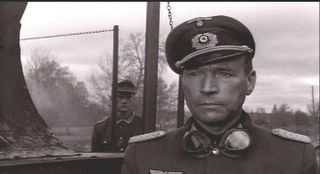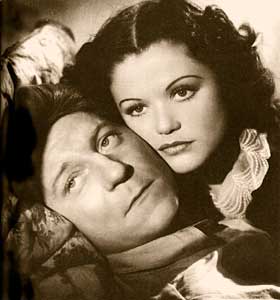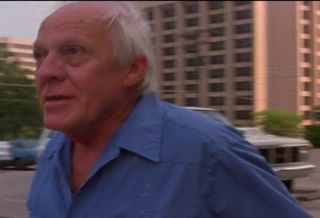
"If we had ten times as many men, it couldn't be done.
It's hopeless Colonel". - - - Major Herren, --
The Train.

Okay this is going to be an unusual post, and I may jump around some, but bear with me. I have sort of an artistic bent of mind, anyway.
As my last post noted, I have been reading
The Assassins Gate : America in Iraq by George Packer. In it he quotes from an article by Ron Suskind, that originally appeared in the New York Times magazine of October 17, 2004. It was entitiled
Without a doubt, and goes on for over 10 pages in the online version. Here is the pertinent excerpt:
“
In the summer of 2002, after I had written an article in Esquire that the White House didn't like about Bush's former communications director, Karen Hughes, I had a meeting with a senior adviser to Bush. He expressed the White House's displeasure, and then he told me something that at the time I didn't fully comprehend -- but which I now believe gets to the very heart of the Bush presidency.
The aide said that guys like me were ''in what we call the reality-based community,'' which he defined as people who ''believe that solutions emerge from your judicious study of discernible reality.'' I nodded and murmured something about enlightenment principles and empiricism. He cut me off. ''That's not the way the world really works anymore,'' he continued. ''We're an empire now, and when we act, we create our own reality. And while you're studying that reality -- judiciously, as you will -- we'll act again, creating other new realities, which you can study too, and that's how things will sort out. We're history's actors . . . and you, all of you, will be left to just study what we do.''
And as Packer in his book points out of this: “The way the world now works amounted to a repudiation of reason, skeptical intelliegence, the whole slate of liberal Enlightenment values.”
pg.390 (The arrogance,--- stunning.)
Thinking about this, and thinking about what will likely unfold in this year of 2006, I can’t help but think, that at some point the Bush policy in Iraq, of Total Victory, of winning no matter what, of staying the course, which is by considering these accounts a faith-based initiative, is going to run up against the reality based community, or in this case the reality of what's actually happening on the ground in Iraq.
Two areas to consider:
1) The insurgency is still not in its “last throes”. A sort of stasis has developed. The US armed forces and allies can’t really beat down the insurgency. But as long as these troops are in Iraq, the insurgents can’t really take over either. Some retired generals from the US, have in different articles speculated that to actually beat , or end the insurgency, it would take 700,000 troops.
2) From everything I’ve read it sounds like only a miniscule amount of $18 billion set aside, has been spent on the reconstruction efforts in Iraq. Electricity continues to be a problem,and the oil industry limps along.
Right now the policy calls for holding off the insurgency until Iraqi troops can handle this as a security problem, while supposedly we are trying to do reconstruction at the same time.
This is just my humble opinion, but it seems to me, if we were to withdraw from Iraq, then the mostly Sunni based insurgency, would have no other targets to attack except the Shiite based government, and presumably other Shia peoples.
The Shia would be highly motivated at this point , to defend themselves. And they do have their own militias now. The Kurds have there own demarked area, and by all accounts have already a more peaceful place.
On our way out, we could then give the Iraqi government a number of I.O.U.s, saying okay once things calm down, and you agree to reach some accomodation and get serious about doing what's best for your country as a whole, our best reconstruction people will come back, with the UN too, and help you get all your infrastructure up and running.
And if the US just has to have a base in Iraq, we could probably find the Kurds would only be too happy to oblige. Of course leaving the main part of Iraq, would mean leaving Halliburton in the lurch, and no more control over the future of Iraq oil refineries.
Is it worth losing 58 American lives per month on average, and untold wounded, just to maintain our grip on our free market stakes in Iraq?
I guess I am very cynical, but don’t get me wrong, I am sad about fellow Americans that have died in the line of duty.
Meanwhile as I was rereading Suskinds article again, I flashed on the final scene from the John Frankenheimer’s movie
The Train, with Burt Lancaster.
The train with plundered French art is derailed at the end, along with hostages on it. The German Col. Von Waldheim is insistent on winning, insists that his soldiers and the hostages start to work on somehow, getting the steam locomotive back on the rails.
And in an emotional scene his adjutant, Major Herren, played by the familiar Wolfgang Preiss, tells him:
“If we had ten times as many men, it couldn’t be done.
It’s hopeless Colonel. "
Well, the present Bush Iraq policy is like that derailed train, and though the Colonel keeps insisting they try to get the train back on the track, its quite evident that its just not happening. At some point reality, as voiced through a Major Herren, or just the facts themselves, will intrude.
In the meantime guess who the hostages to this train ride have been.?






